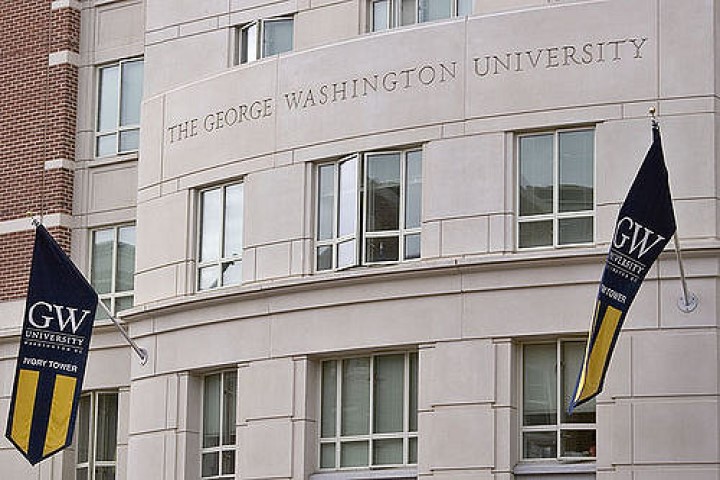Two student athletes at George Washington University are sharing how the lessons they’ve learned through years of military training and team sports have prepared them to excel as leaders.


Two student athletes at George Washington University are sharing how the lessons they’ve learned through years of military training and team sports have prepared them to excel as leaders.
Senior Riley Tejcek, an infielder on the George Washington University softball team, participated in the Marine Corps Platoon Leaders Course over the last two summers, and sophomore swimmer and diver Nick Tomczyk is simultaneously training for the Naval Reserves.
And while the physical aspects of the military programs have undoubtedly helped to keep the students in top form, both contend it’s the military’s leadership mentality of serving a higher purpose that has benefitted them the most, the GW Hatchet reports.
“It’s all about the team unit, it’s not about you, it’s about the people next to you,” Tejcek said. “That’s the important thing, is it’s not about you.”
The students discussed their grueling schedules, from early morning workouts before a day full of classes to rigorous military training sessions and Division I championships.
“Once I’m done with one thing, I focus on the next thing and that’s how I get through it,” said Tomcyzk, a squad leader in the Naval Reserve Officer Training Crops. “I take it one step at a time each day.”
Tomcyzk said he’s using lessons learned in the water to guide his seven-person platoon.
“Being a part of a team definitely helps because I’m learning from the captains of the swim and dive team how they’re being leaders,” he said. “I can take stuff off of them and transfer it to the unit to be a leader.”
Tejcek said the selfless approach to team work in the Marine Corps mirrored her approach as captain of the softball team, both providing the “rewarding experience” of serving something bigger then herself.
“Those are the people that are going to impact me the rest of my life,” she said. “Above all else is the relationships with people I’ve met along the way that keeps me going and keeps me motivated, absolutely.”
Researchers at the Institute of Advanced Studies in Culture discussed the “thick” and “dense” moral culture common in the military and team sports in “The Content of Their Character,” a summary of character education programs in a variety of U.S. high schools.
Through numerous interviews and observations, researchers noted “the source and setting for moral and civic education matter – that the ‘thickness’ of cultural endowments and the ‘density’ of moral community within which those endowments find expression are significant in the formation of personal and public virtue in children.”
The career site The Balance Careers offers an outline of the United States Marine Corps Platoon Leaders Course for students and school counselors exploring career options. The program involves a very dense moral community through weeks-long summer training sessions, while offering tax-free monthly stipends, tuition assistance and training pay.
Upon graduating from college, students are commissioned as officers in the U.S. Marines and go on to attend six months of basic training.